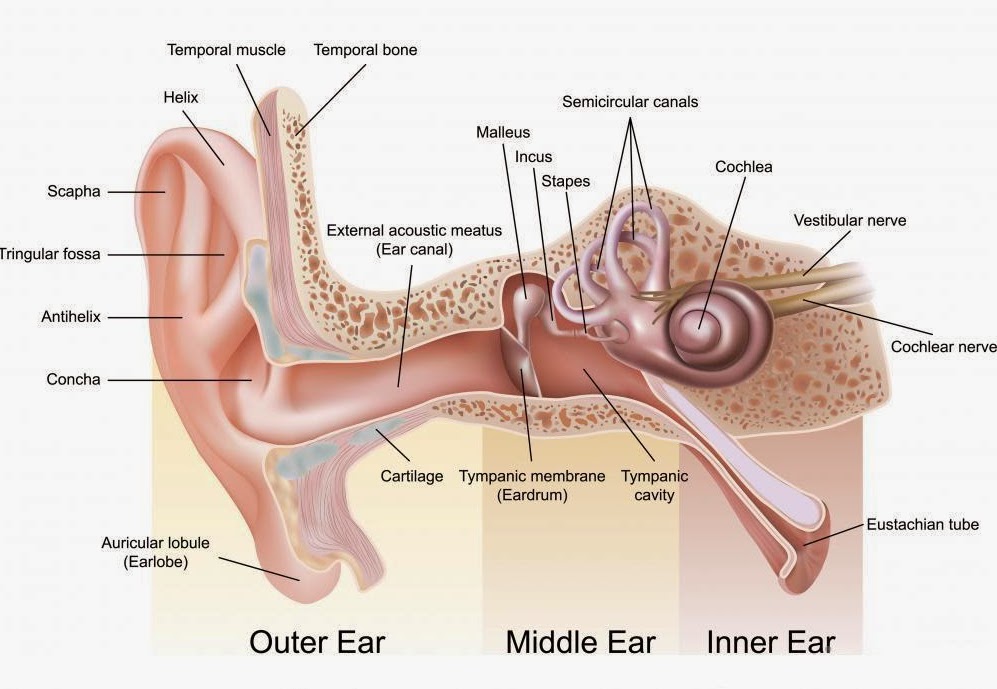Vertigo: around and around we go!

Vertigo is an unpleasant sensation where the environment or your surrounding is moving or spinning non-stop even when you're not moving. This can make you feel sick, dizzy, lightheaded, sweating, nauseous and sometimes vomit. It is typically worse when the head is moving. If this occur to you, quickly hold on to your nearest static object like the chair or bed or the wall to help you from losing balance and fall
Why does this happen? There are many possible causes. This can be generally divided into two, the peripheral ('outside') vertigo and central ('center') vertigo. Your doctor may asked several different questions to help differentiate between the two causes

Peripheral vertigo means the causes are from outside the brain. This includes:
- Benign paroxysmal positional (BPPV) - most common cause of peripheral vertigo which accounts of 32% of all peripheral vertigo. It usually occur very suddenly with specific head turning position. Symptoms cease after several minutes if the patient does not move but resume with further change in position. The mechanism is due to stimulation of the cochlea labyrinth (a maze of fluid-filled channels in the inner ear) by free-floating tiny stone (canalith) in the semicircular canal
- Vestibular neuritis (inflammation of the vestibular nerve) and labyrinthitis (inflammation of the cochlea labyrinth in the inner ear) usually cause by viral illness. Patient may reports a viral upper respiratory symptoms followed by vertigo and occasionally ringing in the ear and hearing loss. Symptoms usually resolved with no residual deficits within 3-6 weeks
- Menierre's disease (occured as triad of vertigo, ringing inside the ear(tinnitus) and hearing loss). The cause is not known but suspected due to fluid build- up in the inner ear (cochlea labyrinth) causing damage to the hair cells in the semicircular canal. This can cause permanent hearing loss if not treated
- Medication such as aminoglycoside antibiotic (such as gentamicin), sedative anti-histamine and cough medicine, epilepsy medication (phenytoin)
- Psychology (such as anxiety disorder)
Central causes on the other hand arises from injury to the balance center in the brain (such as brainstem or cerebellum). You may experience other serious symptoms such as double vision, weakness on one-side of your face or limb, slurring of speech and unsteadiness when walking or standing. Among causes of central vertigo are:
- Stroke (infarction or bleeding)
- Cancer in the brainstem (vestibular schwannoma or cerebellar cancer)
- Problem with the nec spine (cervical spondylosis)
- Migraine headache
- Autoimmune condition (multiple sclerosis)
Your doctor will take comprehensive history taking and perform neurological assessment and ear assessment to help determine the cause of your vertigo. This include Dix- Hallpike maneuver to differentiate between peripheral and central vertigo. If your doctor suspected central vertigo, an urgent imaging of the brain is needed to diagnose this
How is vertigo treated? It depends of the underlying causes. Occasionally anti-vertigo medication such as Betahistine or Stemetil may be given to help your symptoms. If your vertigo are due to medication you are currently taking, your doctor may advise you to stop or change your medication. BPPV can be improve with Epley maneuver or canalith- repositioning maneuver by your doctor or modified Epley maneuver you can do at home. Be sure to check with your doctor whether you can perform this maneuver safely at home. Acute inflammation of the vestibular nerve and labyrinth can last for few days and resolves within several weeks with anti-vertigo medication and vestibular exercises. If the cause of your vertigo is due to psychiatric disorders such as panic disorder and generalized anxiety disorder, your doctor may prescribe you medication such as short term Benzodiazepine and SSRIs
If you experiencing vertigo symptoms, talk to our doctor for more information today



